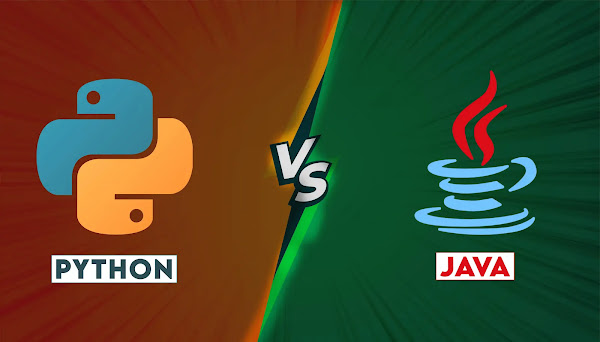Python and Java are two of the most popular programming languages in the world, each with their own strengths and weaknesses. In this article, we'll compare Python vs Java in a tabular form, highlighting the key differences between the two languages.
| Python | Java |
|---|---|
| Python has gained a lot of popularity in recent years due to its simplicity and ease of use. | Java is one of the most popular programming languages in the world and has been around for over 20 years. |
| Python's syntax is easy to learn and read, with a focus on simplicity and readability. It uses indentation to define blocks of code. | Java's syntax is more complex, with a focus on strict rules and structure. It uses braces to define blocks of code. |
| Python is dynamically typed, which means that variables can change type at runtime. | Java is statically typed, which means that variables are assigned a type at compile time and cannot be changed. |
| Python uses automatic memory management through a process called garbage collection. | Java also uses garbage collection to manage memory, but it also allows for manual memory management through the use of pointers. |
| Python is generally slower than Java, but it can be faster in certain situations. | Java is faster than Python in most situations due to its efficient use of resources. |
| Python is platform independent and can run on any operating system. | Java is also platform independent and can run on any operating system with a Java Virtual Machine installed. |
| Python has a large number of libraries and frameworks available for a wide range of purposes, including scientific computing, machine learning, and web development. | Java also has a large number of libraries and frameworks available, particularly for enterprise-level applications. |
| Python's simplicity and ease of use make it a good choice for beginners. | Java's complexity and strict rules make it more challenging for beginners, but it is a good choice for more advanced programmers. |
| Python has a growing demand for skilled programmers due to its popularity in data science and artificial intelligence. | Java has a strong demand for skilled programmers in enterprise-level applications and Android app development. |
Which pays more Python or Java?
The salary for a Python or Java developer can vary depending on many factors such as location, experience, and industry. Therefore, it is not possible to say which one pays more in general.
However, according to recent salary surveys, both Python and Java developers are in high demand and can earn competitive salaries. In some areas, such as data science and artificial intelligence, Python developers may earn higher salaries due to the popularity of these fields. On the other hand, Java developers may earn higher salaries in areas such as enterprise-level applications and Android app development.
In summary, the pay for Python vs Java developers can vary depending on several factors, and it's important to do research on the specific job market and industry to determine the expected salary for each language.
Can Python replace Java?
Python and Java are two different programming languages with their own strengths and weaknesses. While they both have some similarities, they are not interchangeable in all cases.
Python is a popular language for data science, machine learning, and scientific computing, and it is known for its simplicity, ease of use, and quick development time. Python is also widely used in web development, with popular frameworks such as Django and Flask.
Java, on the other hand, is a mature language that has been around for over 20 years and is widely used in enterprise-level applications, Android app development, and large-scale distributed systems. Java is known for its performance, security, and stability, and it has a large ecosystem of libraries and tools.
While Python is gaining popularity in several fields, it may not be able to completely replace Java in all cases. Java has a strong presence in many industries, and there are many legacy systems built in Java that are still in use today. Additionally, Java's strict typing and object-oriented design make it well-suited for complex enterprise-level applications that require high performance and scalability.
In summary, Python and Java are both powerful languages with their own strengths and weaknesses. While Python may be a good choice for certain use cases, it may not be able to completely replace Java in all situations. The choice between Python vs Java will depend on the specific needs of your project and the requirements of the industry you are working in.
Conclusion
In conclusion, Python and Java are two very different programming languages, each with their own strengths and weaknesses. Python is a good choice for beginners and those looking for a simple and easy-to-learn language, while Java is better suited for more advanced programmers and those working on large-scale enterprise applications. Ultimately, the choice between Python vs Java will depend on the specific needs of your project and your personal preferences as a programmer.

